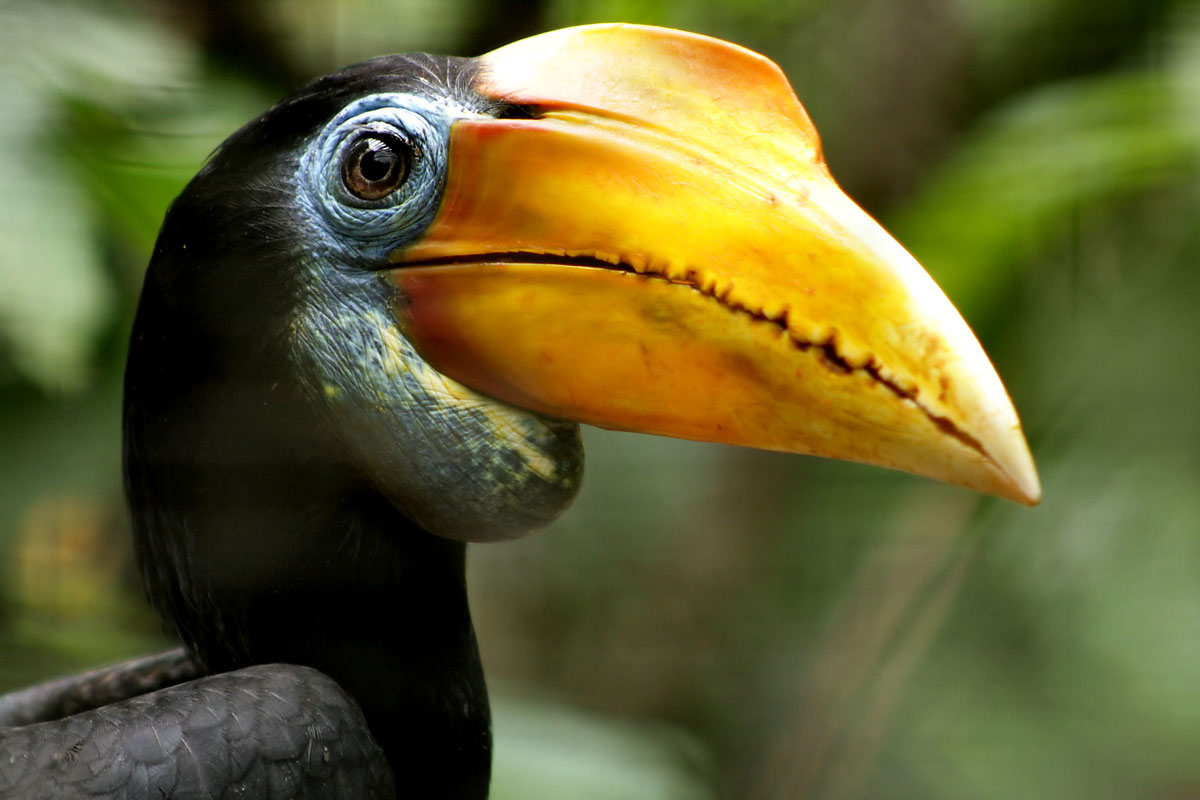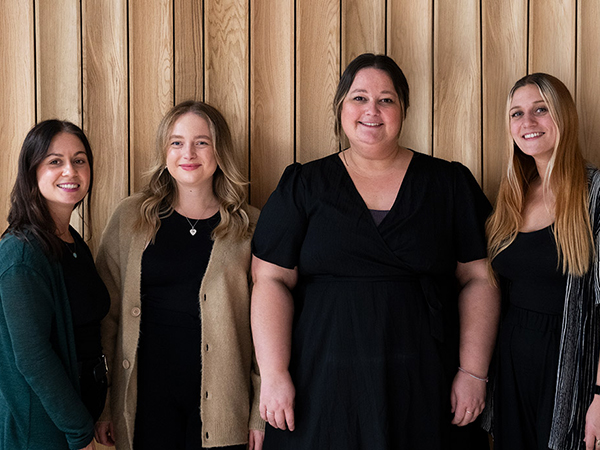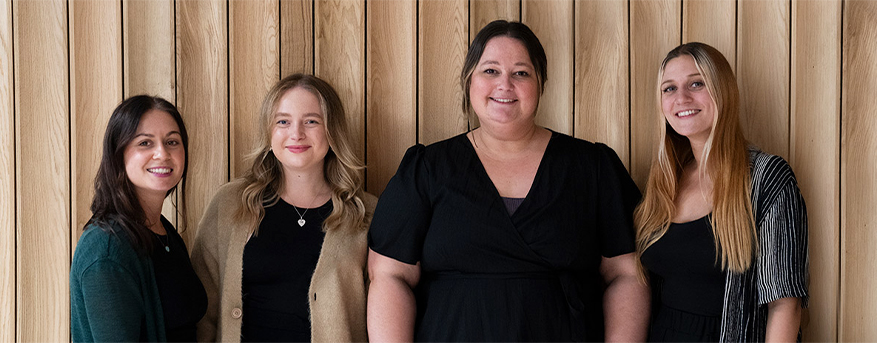Malaysia travel advice
Tips on keeping dry
Haanim Bamadhaj, marketing manager of our supplier The Dusun Nature Resort, shares her local knowledge of Malaysia: “It rains at 4pm pretty much every day in the rainy season which makes the perfect time to have a hot tea and watch the storm before the mists rise out of the jungle.”
Advice on homestays
Chloe Mckellar, from our supplier Rickshaw Travel, explains where’s best to homestay: “We find the northeastern part of the Malay Peninsula, within the Kota Bharu region, to be much more authentic than the west with homestays in local villages or within small guesthouses definitely the best way to immerse yourself in Malaysia's Muslim culture.”
Wildlife watching – beyond Borneo
Mark Ord, Southeast Asia specialist for All Points East, shares tips for wildlife fans: “Belum National Forest makes the wildlife reserves of Borneo look like zoos. Wild elephants, monkeys and flocks of hornbills (we stopped counting when we got to 500) make north central West Malaysia a much more authentic environment for animals.”Kuala culture advice
Haanim Bamadhaj, from our supplier The Dusun Nature Resort:“If you’re in KL, No Black Tie and Under 9 are both great underground places for jazz and live music and the KL Performing Arts Centre (Klpac) is the place to be for theatre productions and dance shows.”
Transport advice
Chloe Mckellar, from our supplier Rickshaw Travel:“It's easy to get around Malaysia by coach or by bus with east coast buses tending to be a bit smaller whereas west coast buses are more like National Express coaches. Coaches can get really cold, due to excessive air-conditioning, and journeys can take a long time. Pack accordingly with jumpers, snacks, water and entertainment.”
Malaysia holiday, 14 days
An authentic glimpse of Malaysia’s highlights in two weeks.
From
£1399
14 days
ex flights
Borneo orangutan holiday
Trekking, wildlife and beach adventure holiday to Borneo
From
£4275
14 days
inc UK flights
Malaysia tailor made holiday
Malaysian culture, wildlife & the beaches of Langkawi
From
£2195
14 days
inc UK flights
Borneo tour, Great Apes and Beach escapes
Explore bustling cities, lush jungles and paradise beaches.
From
£2400
9 days
ex flights
Sabah holiday, land beneath the wind
Wildlife & culture in Malaysia
From
£1500 to £2090
11 days
ex flights
Borneo and Malaysia small group holiday
Visit both halves of Malaysia
From
£3299 to £4499
16 days
inc UK flights
Contact Us

Call us for a chat about our holidays. We are happy to discuss your holiday and help in any way we can. No bots, queues or awful hold music.
01273 823 700
Call us until 6pm
Calling from outside the UK

HEALTH & SAFETY
HEALTH
SAFETY
MALAYSIA TIPS FROM OUR TRAVELLERS
At Responsible Travel, we think the best people to advise our travellers are often... other travellers. They always return from our tours with packing tips, weather reports, ideas about what to do - and opinions about what not to.
We have selected some of the most useful Malaysia travel tips that our guests have provided over the years to help you make the very most of your holiday – and the space inside your suitcase.
We have selected some of the most useful Malaysia travel tips that our guests have provided over the years to help you make the very most of your holiday – and the space inside your suitcase.

The most memorable part of the holiday was snorkelling and trying scuba diving in the Perenthian Islands off the east coast of Malaysia![]()

– Kate Hemming
“Take a torch with a red light with you as it will be very useful while watching turtles at night.” – Wendy Heck, on a marine conservation holiday
“It is useful to carry a supply of 20sen coins for the loos in Malaysia.” – John Newham
“It's quite demanding physically in parts, and the rainforest can be chilly overnight – take warm gear for that! Be nice to your guide - they work extremely hard!” – Laura Brodrick
“Go to the night market in Kota Kinabalu, you get a feeling you are in a place very different from England!” – Anna Davies
“It is useful to carry a supply of 20sen coins for the loos in Malaysia.” – John Newham
“It's quite demanding physically in parts, and the rainforest can be chilly overnight – take warm gear for that! Be nice to your guide - they work extremely hard!” – Laura Brodrick
“Go to the night market in Kota Kinabalu, you get a feeling you are in a place very different from England!” – Anna Davies

Spend more time on the Kinabatangan River – it's an amazing place and with the palm oil plantations growing all the time it makes the rare experience of seeing animals in the wild all the more special.![]()

– Deborah Flint
“Take extra cash to tip your guides as they are fantastic and deserve it. Take a decent camera, one preferably with a zoom lens to get good snaps of the wildlife. After that sun cream, sun cream, sun cream.” – Anna Higgins
“This is the perfect place to relax. If you are okay without internet 24/7 (there is limited internet though), and think it is fun to have a gecko in your house that makes jungle sounds, then this is the place for you! You can be as busy or as lazy as you want: there are two swimming pools, opportunities to go birdwatching and jungle trekking - however it's quite fabulous just to sit on the terrace and enjoy the view and the peace and quiet.” – Erika Dutting, who stayed in the rainforest bungalows near Kuala Lumpur
“Don't forget to plug in your mosquito zapper every night. We (ok I) forgot one night and paid the price (though not really too bad). But it showed us how well they work.” – Matthew Murphy
“This is the perfect place to relax. If you are okay without internet 24/7 (there is limited internet though), and think it is fun to have a gecko in your house that makes jungle sounds, then this is the place for you! You can be as busy or as lazy as you want: there are two swimming pools, opportunities to go birdwatching and jungle trekking - however it's quite fabulous just to sit on the terrace and enjoy the view and the peace and quiet.” – Erika Dutting, who stayed in the rainforest bungalows near Kuala Lumpur
“Don't forget to plug in your mosquito zapper every night. We (ok I) forgot one night and paid the price (though not really too bad). But it showed us how well they work.” – Matthew Murphy

























